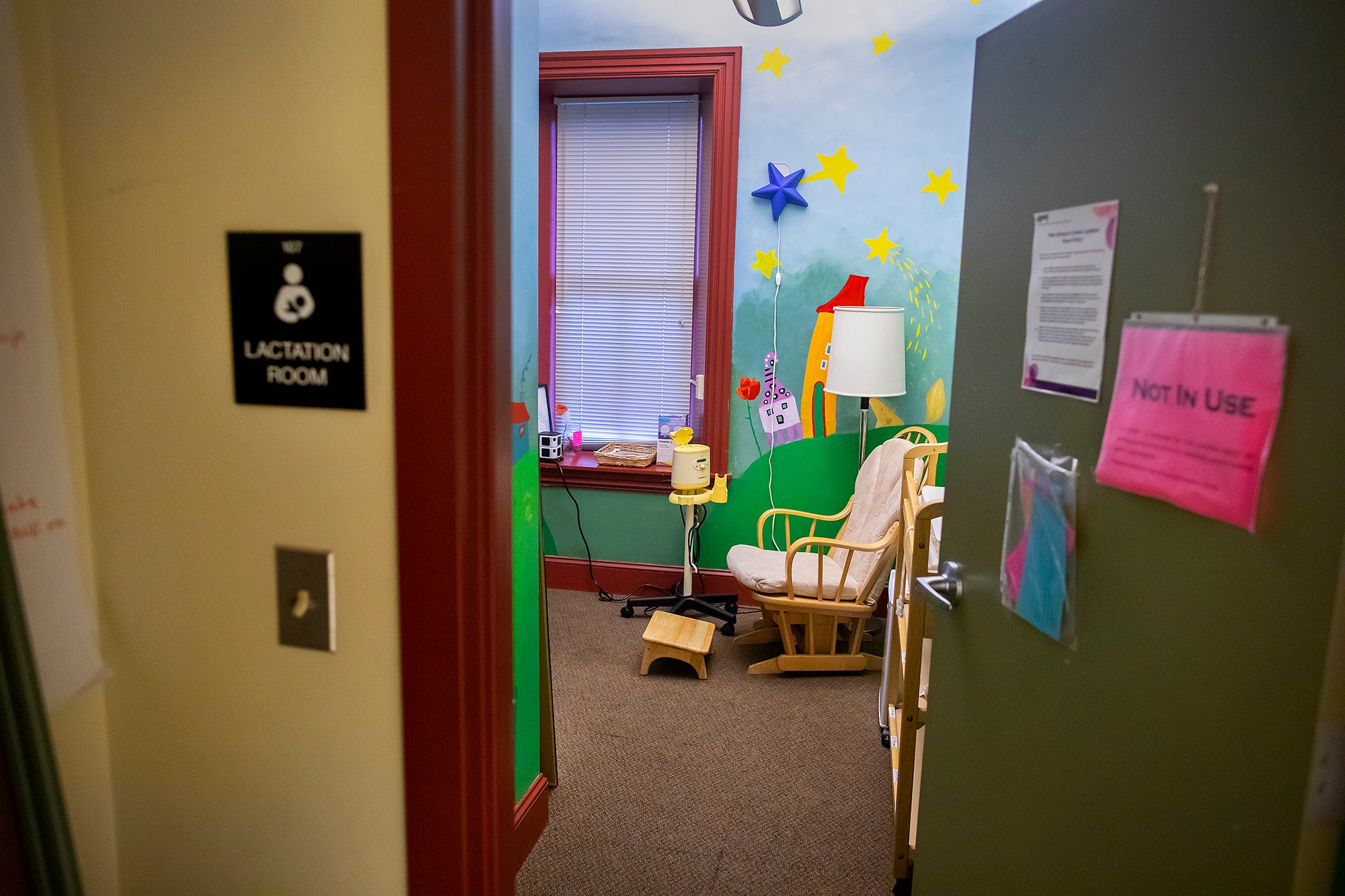The six-part series from Penn Today focuses on University resources for students, faculty, and staff.
Wellness and well-being are woven into the life of Penn’s campus for students, faculty, postdocs, and staff. In the sixth part of a new series highlighting University resources supporting the campus community, Penn Today focuses on family, from sexual and reproductive health to resources for parents of young children.
“Penn is a very big place, and a lot of times people don’t know where to go for support,” says Elisa Foster, director of the Penn Women’s Center, a place that can be a first stop. “We often help people navigate resources on campus and make sure they know their rights and University policies.” The Women’s Center is one of the University’s confidential resource offices.
Offices and centers such as the Penn Women’s Center, Wellness at Penn, the Family Resource Center, the Division of Human Resources, the LGBT Center, Penn Violence Prevention, and University Life work together to support students, faculty, staff, and postdocs.
Karen Kille, manager of quality of work-life programs for HR, says it’s important “for people to take time to engage with the resources and support. To navigate uncertainty or stressful situations, it’s best to have those things in your toolbox in advance.” She encourages people to educate themselves on other topics covered in Penn Today’s series, such as financial wellness and mental health resources.
Reproductive health
- Gynecologic care: Penn is unique in having a dedicated gynecologic section for students rather than including it in primary care services, says Katharine Smith, a nurse practitioner whose entire practice at Wellness at Penn’s Student Health and Counseling is dedicated to gynecology. It provides contraception counseling and prescriptions, including emergency contraception.
- So much of what they do, she says, is “about body education, sexual health education, and all these factors that we know are complexly tied to agency, confidence, and identity.” She also notes that the medical care providers established a gender-affirming care program and that gynecologic care at Penn is not geared only toward cisgender women.
- Smith says one misconception she hears a lot from patients is that they think they need to go outside of Student Health and Counseling to get gynecology care, but the reality is they only need to refer out for certain situations, such as surgery. Jackie Recktenwald, director of well-being initiatives for Wellness at Penn, says providers are trained to make off-site referrals for abortion services, which are legal in Pennsylvania.
- Sexually transmitted infection testing: Regular STI screening is recommended for all sexually active individuals, even without symptoms. The cost for STI screening continues to be nominal and is dependent upon insurance. It can be billed through insurance or paid out of pocket.
- Wellness express vending machine: Coming soon to the third floor of the ARCH (3601 Locust Walk) is a vending machine where PennCard holders will be able to get free over-the-counter wellness products, including Plan B, condoms, menstrual products, COVID tests, hand sanitizer, cold medicine, and more.
- Access to menstrual products: Recktenwald says that for any machines with menstrual products that are still coin-operated building administrators can reach out to Wellness to convert them to free. The Penn Women’s Center also sometimes offers workshops for the Penn community about sustainable period products and distributes reusable pads and cups.
Trying to have children
- Fertility: Susan Sproat, executive director of benefits for Human Resources, notes that Penn health plans for faculty, staff, and postdocs have had coverage for advanced reproductive care—such as in vitro fertilization—for many years, and she explains more recent changes. Several years ago, Penn removed the requirement of an infertility diagnosis, making care inclusive for different family types such as single women, LGBTQ couples trying to achieve pregnancy, and families considering a gestational surrogate.
- In 2023, Penn began working with Carrot Fertility. Once people register, they get a $30,000 lifetime maximum benefit for fertility treatments, such as in vitro fertilization, surrogacy, and fertility preservation services such as freezing eggs. Sproat says care managers work with people to see where they are on their family-planning journey and discuss options and alternatives that meet family needs.
- Adoption assistance: Penn recently increased this faculty and staff benefit to $10,000, for reimbursement of court costs, attorney’s fees, and traveling expenses.

